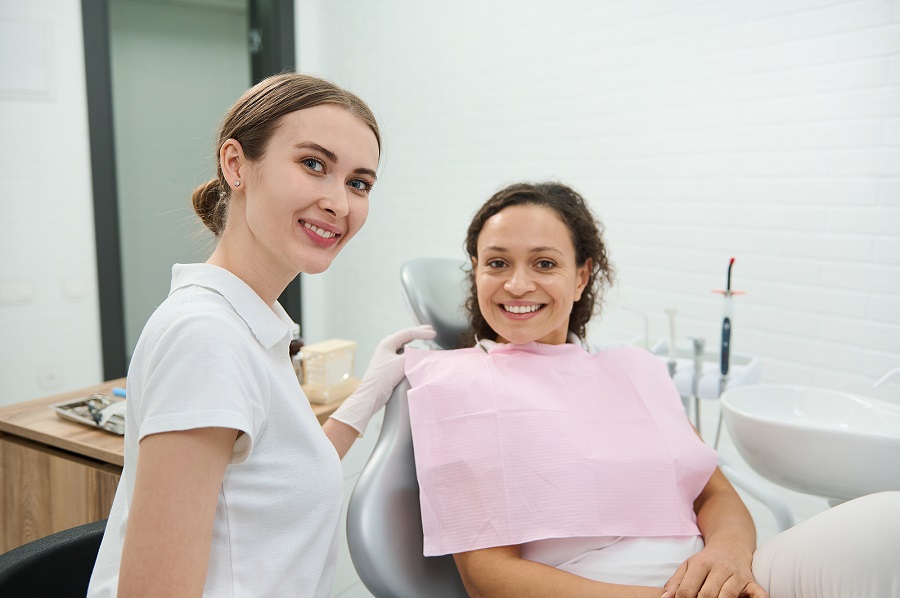The human body needs several nutrients, including vitamins and minerals, to function normally. A lack of these nutrients can cause health problems; taking supplements can help correct any deficiencies.
Humans need a wide range of different vitamins and minerals for proper health. Essential vitamins are organic compounds that can't be synthesized in the body and must be consumed in the diet; without them, the body cannot function correctly.
Here are some of them:
Vitamin A
Eating a balanced diet rich in whole foods is the best way to maintain your oral health, but there are certain vitamins that are essential to keeping your teeth and gums healthy. Vitamin A is particularly helpful when it comes to gum health. This vitamin helps the cells in your gum tissue to regenerate and repair themselves. When your gums are healthy, they are more resistant to infection and disease.
If your diet is lacking vitamin A, you may develop gum disease. Your dentist may recommend taking a supplement or increasing your intake of foods like eggs, milk, cheese, and dark leafy green vegetables.
Vitamin B
Why is vitamin B important for your teeth? This vitamin helps produce red blood cells in your body, which carry oxygen to your cells. This helps your body take in nutrients and produce energy. It also helps to keep the immune system healthy and remove waste products from your system. Your body also uses B vitamins to make collagen and elastin proteins, which help hold your gums and teeth in place. Without enough of this vitamin in your system, you can have weakened gums or bleeding caused by low platelet counts. Vitamin B deficiencies can also cause mouth sores that bleed easily and make eating painful.
You can get plenty of this essential vitamin by eating foods that contain it, such as fish, eggs, potatoes, spinach, cheese, and bananas. You should also take a supplement if your diet isn't providing you with enough of this important nutrient. Your dentist may recommend taking a supplement before you have any procedures done, like getting a dental crown. With the right amount of B-complex vitamins in your system, you will feel better and heal faster after any oral surgery.
Vitamin C
Vitamin C is great for your teeth because it supports gum tissue health and can reduce inflammation, redness, bleeding, and pain. It also aids in the production of collagen that keeps your gums healthy by strengthening the tissue that holds teeth in place. Foods such as oranges, strawberries, bell peppers, broccoli, pineapple, spinach, kale, and Brussels sprouts are all great sources of vitamin C that can easily be added to your diet.
Vitamin E
Vitamin E is an antioxidant that helps promote overall oral health. It's an excellent anti-inflammatory agent that can help with sore or tender gums, as well as relieve inflammation caused by gingivitis. Vitamin E is also good for healing mouth sores, cuts, or wounds in the mouth. Nuts, seeds, vegetable oil, and some types of fish are great source of vitamin E.
Vitamin D
Vitamin D is necessary to maintain healthy teeth and bones. Since vitamin D is found mostly in fatty fish or fortified milk, many elderly adults are deficient in the vitamin. Talk to your dentist about how you can get more vitamin D in your diet to prevent periodontal disease.
Vitamin D deficiency can cause teeth to become loose and eventually fall out, according to the National Institutes of Health. However, getting enough of this essential vitamin can prevent tooth loss and keep your teeth strong and healthy.
If you are deficient in vitamin D, take over-the-counter supplements containing this nutrient as well as calcium. Talk to a dentist about other ways you can prevent periodontal disease as well.
To learn more, please get in touch with us through online consultation or by calling us, and we'll guide you further.
More Blog Posts
Office Hours
MON9:00 am - 5:00 pm
TUE9:00 am - 5:00 pm
WED9:00 am - 5:00 pm
THU9:00 am - 5:00 pm
FRIClosed
SATAppointment Only
SUNClosed






